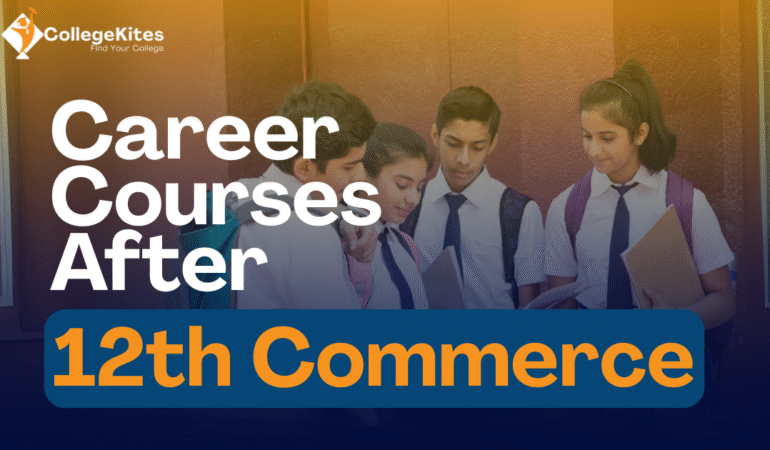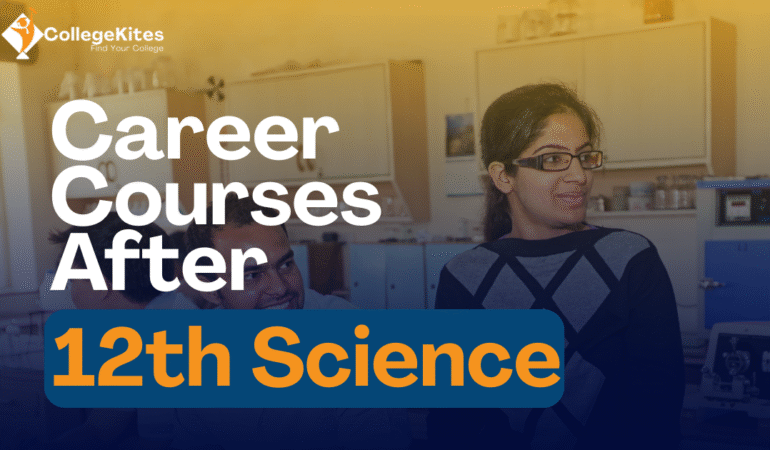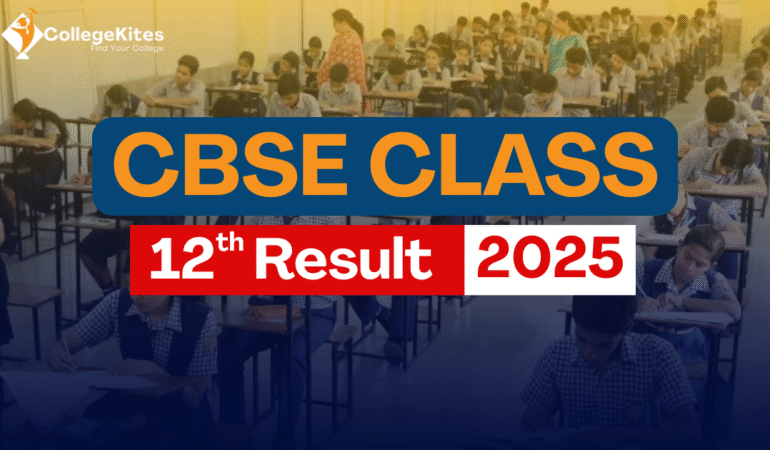Top Career Options After 12th Commerce: A Comprehensive Guide to Graduation Pathways
The completion of the 12th standard with a Commerce background opens a plethora of academic and professional opportunities. Students often find themselves at a crucial juncture, contemplating the most suitable graduation pathway to align with their aspirations and the dynamic demands of the global economy. This guide aims to provide a comprehensive overview of the most prominent and rewarding available career courses after 12th Commerce, detailing the scope, duration, and potential career trajectories of each.
Here’s why choosing a career courses after 12th Commerce is important:
- Foundation for Future Career: Your course after 12th determines your career domain — whether you pursue accounting, entrepreneurship, law, or digital business.
- Professional Growth: Commerce careers such as CA, CS, CFA, or MBA graduates are highly respected and well-paid.
- Diverse Opportunities: Commerce blends with many fields, allowing entry into finance, business, law, analytics, marketing, and more.
- High Demand Across Industries: Businesses always need finance professionals, managers, and legal experts.
- Entrepreneurial Potential: If you dream of starting your own business, commerce knowledge gives you the foundation.
- Global Relevance: Commerce skills are universally needed and recognized, making global careers possible.
- Skill-Based Courses: Many job-ready diplomas and certifications are available right after 12th, offering early career starts.
Here are all the reasons why pursuing a career in Commerce can be rewarding:
This will highlight the advantages and benefits of a Commerce background, such as:
- Wide Range of Opportunities: Versatility across various sectors (finance, management, marketing, etc.).
- High Demand for Professionals: Consistent need for skilled individuals in business and finance.
- Gateway to Entrepreneurship: The foundational knowledge gained for starting one’s own venture.
- Global Recognition & Opportunities: The international scope of many commerce qualifications.
- Potential for High Earnings & Growth: The lucrative nature of many commerce careers.
Commerce Degree and Diploma Courses After 12th
Below is a categorized list of degree and diploma courses that commerce students can pursue based on their interests and career goals.
A. Degree Courses
| Course Name | Duration | Specialization Areas |
| B.Com | 3 Years | Accounting, Finance, Taxation |
| BBA | 3 Years | Marketing, HR, International Business |
| BMS | 3 Years | Strategic Management, Entrepreneurship |
| BCA (for commerce with maths) | 3 Years | IT, Software Development |
| BA Economics | 3 Years | Data Analysis, Research, Policy |
| B.Sc Statistics | 3 Years | Risk Analytics, Banking |
| BBA LLB / BA LLB | 5 Years | Corporate, Taxation, Criminal Law |
| BHM (Hotel Management) | 3–4 Years | Tourism, Hospitality |
| B.Des or Bachelor of Design | 4 Years | Fashion, Graphic, Product Design |
B. Diploma & Certification Courses
| Course Name | Duration | Career Path |
| Diploma in Digital Marketing | 6–12 Months | SEO, Social Media, PPC |
| Diploma in Banking & Finance | 1 Year | Bank Clerk, Finance Assistant |
| Diploma in Accounting (Tally, GST) | 6 Months | Account Assistant |
| Diploma in Event Management | 1 Year | Event Planner, Coordinator |
| Diploma in E-commerce | 6 Months | Amazon Seller, Shopify Expert |
| Diploma in Business Analytics | 6 Months | Data Analyst |
| Certificate in Stock Market | 3–6 Months | Trader, Equity Advisor |
Some Of Top Courses Explained and Many More:
1. Bachelor of Commerce (B.Com)
Overview: The Bachelor of Commerce (B.Com) is a foundational undergraduate degree that provides a strong understanding of accounting, finance, economics, business law, taxation, and management principles. It is one of the most popular choices for Commerce students, offering a broad-based curriculum that prepares students for various roles in the corporate sector.
Duration: 3 Years
Key Specializations (often offered in B.Com Hons. or as electives):
- Accounting and Finance
- Taxation
- Marketing
- Human Resources
- Banking and Insurance
- E-commerce
Career Prospects: Graduates can pursue roles such as Accountant, Auditor, Financial Analyst, Tax Consultant, Business Analyst, or Marketing Executive. A B.Com degree also serves as an excellent foundation for pursuing professional qualifications like Chartered Accountancy (CA), Company Secretary (CS), or Cost and Management Accountant (CMA)
2. Bachelor of Business Administration (BBA)
Overview: The Bachelor of Business Administration (BBA) is an undergraduate program that focuses on developing a strong foundation in business management and leadership skills. It covers various aspects of business operations, including marketing, finance, human resources, operations management, and entrepreneurship. BBA programs often emphasize practical application through case studies, internships, and project work.
Duration: 3 Years
Key Specializations:
- Marketing Management
- Financial Management
- Human Resource Management
- Supply Chain Management
- Entrepreneurship
- International Business
Career Prospects: BBA graduates are well-suited for entry-level managerial positions across various industries. Common roles include Business Development Executive, Marketing Executive, Human Resources Executive, Operations Team Leader, or Project Coordinator. The BBA degree is also an ideal precursor to an MBA.
3. Bachelor of Economics (B.A. Hons. Economics / B.Sc. Economics)
Overview: A Bachelor’s degree in Economics provides an in-depth understanding of economic theories, principles, and their application in analyzing market trends, financial systems, and public policy. It involves rigorous quantitative analysis, statistical modeling, and a critical approach to understanding societal issues through an economic lens. This degree is increasingly popular among Commerce students due to its analytical rigor and diverse career opportunities.
Duration: 3 Years
Key Areas of Study: Microeconomics, Macroeconomics, Econometrics, Mathematical Economics, Public Finance, International Economics, Development Economics.
Career Prospects: Graduates can work as Economists, Financial Analysts, Data Analysts, Market Researchers, Policy Analysts, Consultants, or Statisticians. This degree is also an excellent foundation for postgraduate studies in Economics, Finance, or public policy, as well as for careers in academia or research.
4. Bachelor of Computer Applications (BCA)
Overview: The Bachelor of Computer Applications (BCA) is an undergraduate degree focused on computer science and applications. While traditionally opted by Science students, it is increasingly accessible to Commerce students who possess a keen interest in technology, programming, and software development. It provides a solid foundation in computer fundamentals, programming languages, database management, web development, and networking.
Duration: 3 Years
Key Areas of Study: Programming (C, C++, Java, Python), Data Structures, Database Management Systems, Web Technologies, Operating Systems, Computer Networks.
Career Prospects: BCA graduates can pursue roles such as Software Developer, Web Developer, Database Administrator, System Analyst, Network Administrator, or IT Support Specialist. It is also an excellent foundation for a Master of Computer Applications (MCA) or an MBA in IT.
5. Bachelor of Arts (B.A.) with Relevant Specializations
Overview: While often associated with humanities, a Bachelor of Arts degree offers numerous specializations that can be highly relevant and beneficial for Commerce students, especially those interested in interdisciplinary studies, communication, or specific analytical fields. Relevant specializations can enhance critical thinking, research skills, and communication abilities, which are valuable in any professional setting.
Duration: 3 Years
Relevant Specializations for Commerce Students:
- Journalism & Mass Communication: Ideal for those interested in media, content creation, advertising, or public relations.
- Psychology: Offers insights into human behavior, decision-making, and organizational psychology, beneficial for HR, marketing, and market research.
- English Literature/Language: Enhances communication, analytical, and critical thinking skills, valuable for content writing, editing, and corporate communication roles.
- Statistics: Provides strong quantitative and analytical skills, highly sought after in data analysis, market research, and actuarial science.
Career Prospects: Career paths vary widely depending on the specialization. For Journalism, roles include Content Writer, Journalist, PR Executive. For Psychology, HR roles, Market Researcher, Counselor. For Statistics, Data Analyst, Market Researcher. These degrees often serve as strong foundations for postgraduate studies in their respective fields or for an MBA.
6. Professional Courses (CA, CS, CMA)
Overview: While not traditional graduation degrees in themselves, professional courses like Chartered Accountancy (CA), Company Secretary (CS), and Cost and Management Accountancy (CMA) are highly esteemed qualifications pursued by Commerce students directly after 12th or concurrently with a B.Com degree. These courses offer specialized, rigorous training leading to high-demand professional designations.
Duration: Varies, typically 4.5 to 5 years (can be longer depending on attempts and practical training).
Key Focus:
- CA (Chartered Accountancy): Focuses on auditing, taxation, financial management, and accounting standards. Administered by the Institute of Chartered Accountants of India (ICAI).
- CS (Company Secretary): Focuses on corporate law, governance, secretarial practices, and compliance. Administered by the Institute of Company Secretaries of India (ICSI).
- CMA (Cost and Management Accountancy): Focuses on cost accounting, management accounting, financial planning, and performance management. Administered by the Institute of Cost Accountants of India (ICAI).
Career Prospects: These qualifications lead to highly respected and remunerative careers. CAs work as Auditors, Tax Consultants, Financial Advisors. CS professionals ensure corporate governance and legal compliance. CMAs are crucial in management decision-making, cost control, and strategic planning within organizations.
Conclusion
The landscape of higher education courses after 12th Commerce is rich and diverse, offering pathways tailored to various interests and career aspirations. Whether a student seeks a broad business foundation through B.Com, a management-focused approach with BBA, analytical depth with Economics, a foray into technology with BCA, specialized skills through a B.A. program, or the esteemed status of a professional qualification like CA, CS, or CMA, each option presents a unique trajectory. Prospective students are encouraged to meticulously research each course, consider their strengths, interests, and long-term career goals, and ideally seek guidance from academic counselors to make an informed decision that paves the way for a successful and fulfilling professional journey.
Frequently Asked Questions (FAQs)
1. What is the best course after 12th Commerce?
There is no one-size-fits-all answer. It depends on your interests—B.Com for finance, BBA for management, BCA for IT, and CA/CS/CMA for professional accounting and law.
2. Can I pursue CA without doing B.Com?
Yes, you can start CA right after 12th Commerce. However, doing B.Com alongside it is a common choice for academic balance.
3. Is Maths compulsory for BCA after Commerce?
Some universities require Maths in 12th for BCA, while others allow students from any Commerce background. Check eligibility criteria of the institution.
4. What is the difference between BBA and B.Com?
B.Com is focused on commerce and accounting, while BBA is more management- and leadership-oriented.
5. Which professional course offers the highest salary after 12th Commerce?
Chartered Accountancy (CA) and CFA (after graduation) are among the highest paying professional options.
6. Can I pursue law after 12th Commerce?
Yes, you can pursue a 5-year integrated course like BBA LLB or BA LLB after 12th Commerce.
7. What are the job-oriented diploma courses I can pursue after 12th?
Digital marketing, e-commerce, accounting (Tally/GST), and stock market certifications are popular and job-ready.
8. What is the scope of Economics if I choose it after Commerce?
It opens doors in finance, government policy, research, analytics, and international organizations.
9. Can I become a data analyst after 12th Commerce?
Yes, by pursuing courses like BA Economics, B.Sc Statistics, or diplomas in business analytics and learning tools like Excel, SQL, and Python.
10. Is MBA a good option after BBA or B.Com?
Yes, an MBA adds significant value, especially if pursued from a reputed institute, and enhances career and salary prospects.



